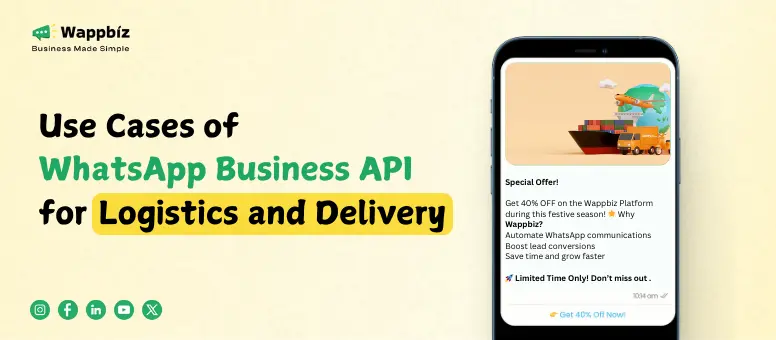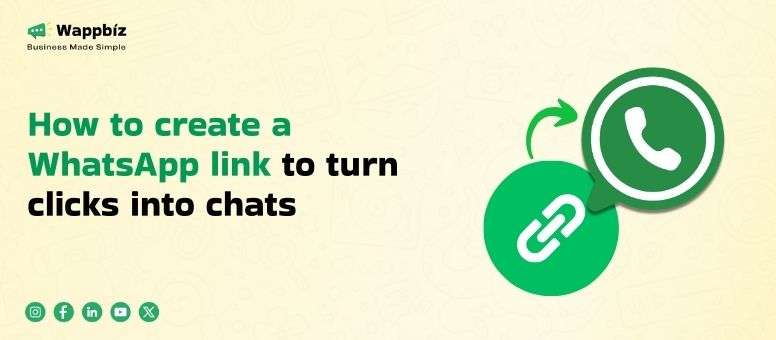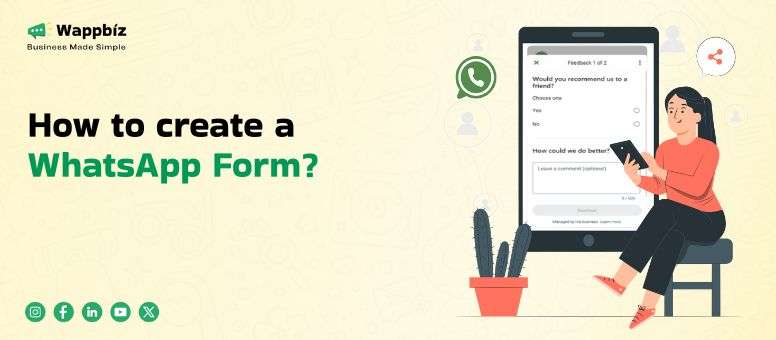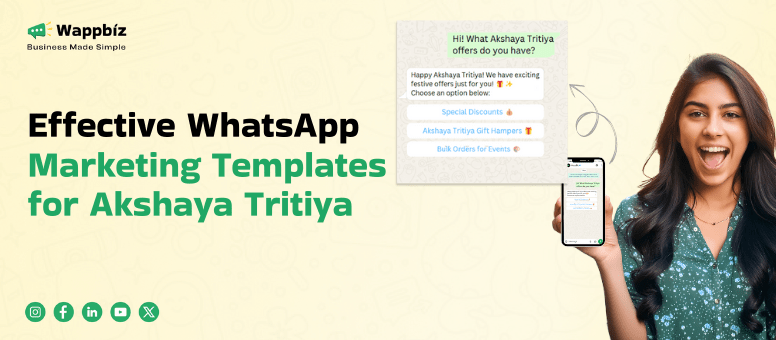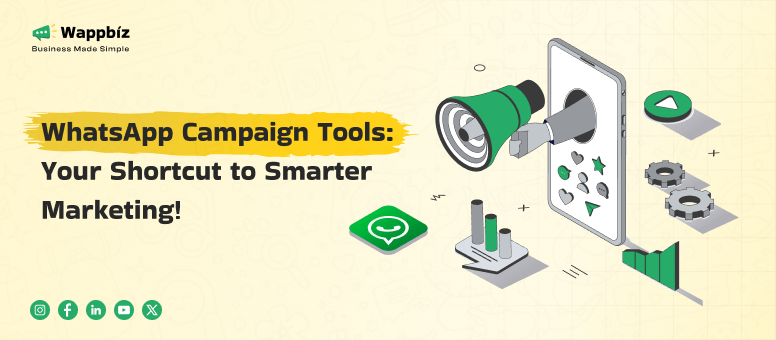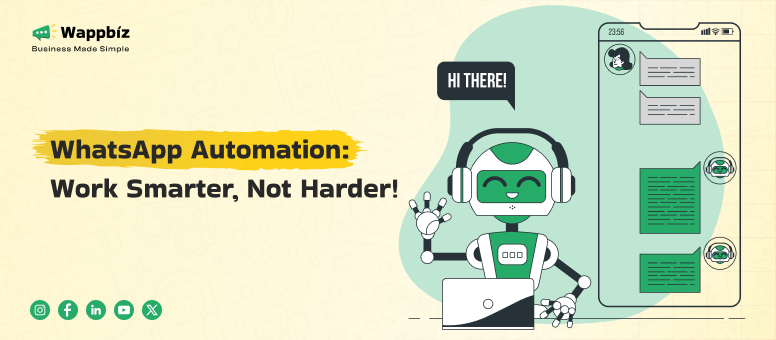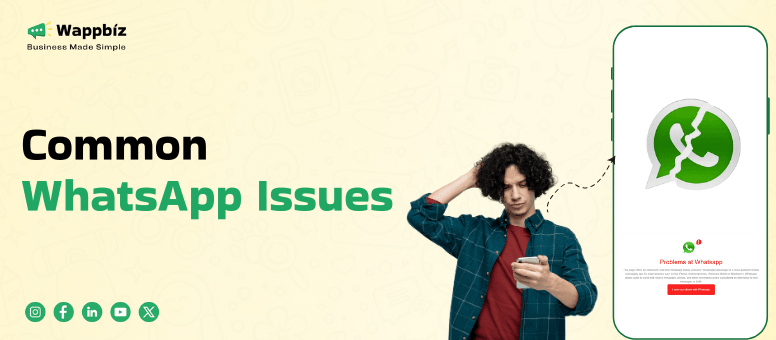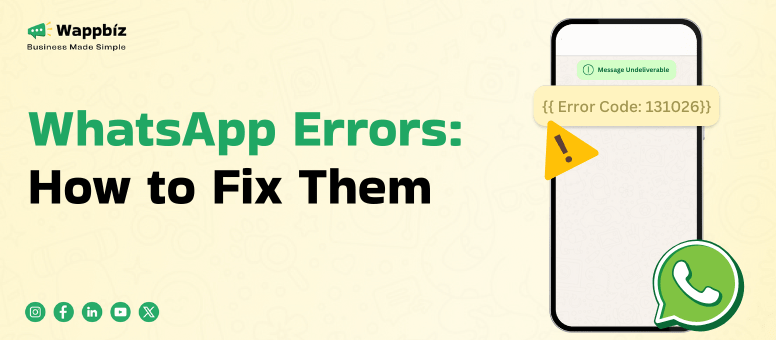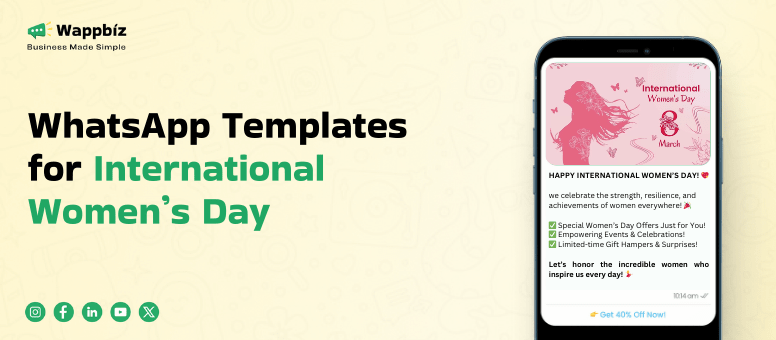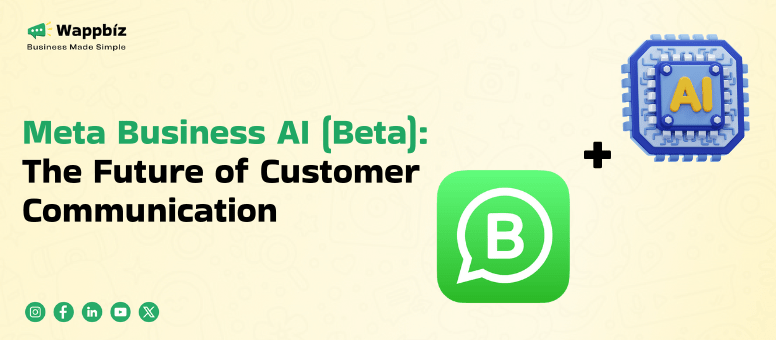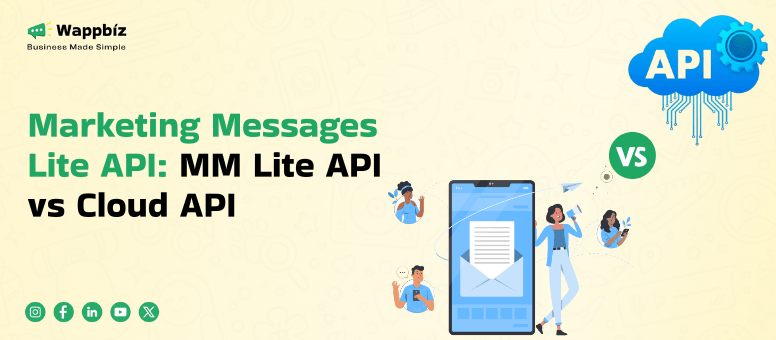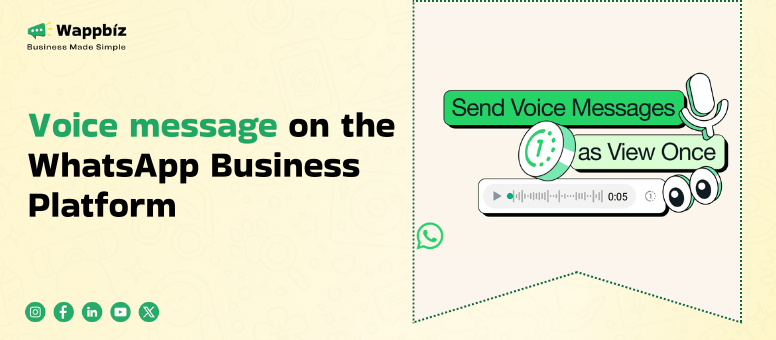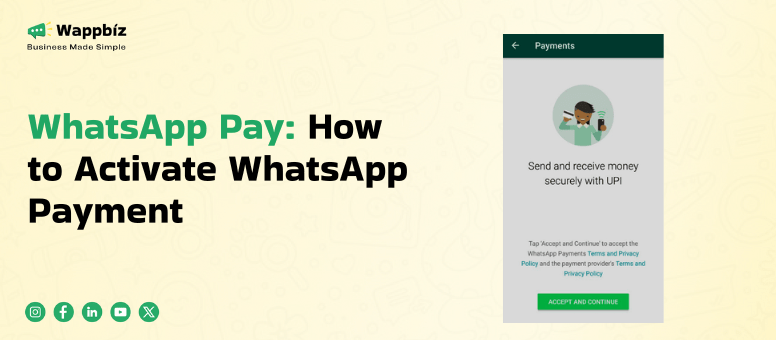Imagine customers getting live delivery updates, instant order confirmation, and proactive notifications on WhatsApp. WhatsApp Business Solution empowers companies to deliver on all fronts as the logistics industry hinges on speed, precision, and transparency to ensure customer satisfaction. From dispatch notifications to failed delivery alerts, WhatsApp is fast becoming the messaging tool of choice for logistics firms that want to engage with customers. Wappbiz enables logistics providers to wire up WhatsApp communications that ease operations, keep customers apprised, or create lasting loyalty through one of the most-used platforms in India.
Why the WhatsApp business API is important for logistics and delivery
In logistics, customer service largely relies on open communication and the dissemination of the most up-to-date information. The WhatsApp Business API is the perfect solution for businesses to reach out to customers, share real-time updates, and provide immediate support. The potential of WhatsApp automation and WhatsApp chatbots enables logistics-driven companies to handle common inquiries, track deliveries, and inform customers in real time. By using Wappbiz, logistics providers can meet customers where they already engage daily, creating a lifeline of engagement that is time-efficient and fosters trust among end users.

Top 20 Use Cases of WhatsApp Business API for Logistics and Delivery
1. Real-Time Delivery Updates
Logistics companies can use the WhatsApp API to send instant updates to customers at each step of the delivery process.
For example, as soon as a customer’s package is out of the warehouse, they get an instant notification on WhatsApp. These updates enable customers to stay informed without the need to visit a separate website, thereby fostering peace of mind and transparency. By informing customers ahead of time, they can minimize follow-up inquiries regarding the delivery status, thus providing a seamless experience for the company as well as the client.
2. Automated Order Confirmations
WhatsApp can send an automated confirmation message that includes order details, estimated delivery time, and even a tracking number when you place an order.
For example, when a customer places an order for a smartphone, WhatsApp simultaneously sends them a confirmation message that includes all necessary details. Such an immediate response not only reassures the customer about the processing of their ordered request but also provides a timeline for its arrival, thereby reducing the need for follow-up.
3. Dispatch notifications
Customers receive dispatch notifications, which notify them when their package ships, and this makes the customer feel engaged with their package.
For example, a customer who ordered a book receives a notification upon dispatch, complete with a link to track it. Such notifications build anticipation and keep your customers updated about the status of their order. To automate these updates, logistics companies can use the WhatsApp Business API, which then makes keeping customers informed easy and without any additional effort.
4. Delivery Day Reminders
On the day of delivery, customers can get a reminder that it’s on its way, along with an estimated delivery window.
For example, a morning message informs customers that their order will arrive between 2-4 PM. That reminder can be useful for customers to plan ahead and make sure someone can take your order when it arrives. This proactive form of communication leads to fewer missed deliveries and a better customer experience.
5. Delivery confirmation messages
Customers receive a delivery confirmation message through the WhatsApp Business API once they order the product from their end.
For example, after delivery, customers receive a WhatsApp confirmation message confirming the receipt of their package. This notification can help provide peace of mind that the package arrived safely in the customer’s hands. The message can also include the recipient’s name if someone else accepts the delivery, forming a complete transaction record.
6. Automated Customer Support
Logistics companies can automate the handling of routine customer queries with WhatsApp Chatbot integration.
For example, if a customer wants to know when a product will reach them, they can simply message the chatbot and receive an instant response. It helps limit pressure on customer service teams to handle complex queries while offering speedy, accurate information to the 71% of customers who seek instant assistance.
7. Pickup Scheduling
If your business offers return shipping or customer pickups, the WhatsApp API can help schedule pickup times.
For example, a logistics firm could use WhatsApp to allow customers to select a convenient time slot for item returns. This feature for scheduling makes it simple for the customers to arrange logistics, whereas the company can also efficiently plan resources to streamline returns.
8. Real-Time Location Tracking
Using the WhatsApp Business API, logistics firms can provide a direct link through which customers can track their delivery driver’s location in real time.
For example, customers waiting for food delivery can follow the driver as they get nearer. Real-time tracking adds the convenience of flexiblely monitoring time-sensitive deliveries, and it brings transparency to the process as it empowers customers to keep track of their packages.
9. Delay Notifications
In case of unexpected delays, WhatsApp automation can instantly inform the customers, which makes them feel updated regarding delayed orders.
For example, when weather-related delays occur, WhatsApp Automation promptly sends a message to customers, informing them about the delay and providing an estimated new delivery time. This level of transparency provides customers with reassurance, reduces frustration, and maintains trust even in the face of unforeseen circumstances.
10. Failed Delivery Alerts
WhatsApp messages can notify customers of failed delivery attempts and permit them to schedule a retry.
For example, a missed delivery notice could include a prompt to select a new delivery time or drop-off location. This not only reduces the costs of the back-and-forth involved in rescheduling deliveries available to customers but also streamlines the logistic provider’s workflow.
11. Payment Collection Reminders
For cash-on-delivery orders, you can use the WhatsApp API to send reminders to customers so that they have cash ready.
For example, customers get a message before the driver comes confirming the amount and reminding them to have cash on hand. This way there are fewer delays in payment, and the delivery goes on smoothly, which is especially useful in markets where cash-on-delivery is a popular payment option.
12. Address Verification
Before delivering high-value items, logistics companies can use the WhatsApp API to confirm with the customer delivery address.
For example, the message requests that the customer confirm their address to avoid any misdelivery. This helps eliminate errors, reduces wasted time, and limits the expenses involved in sending goods to corrected addresses.
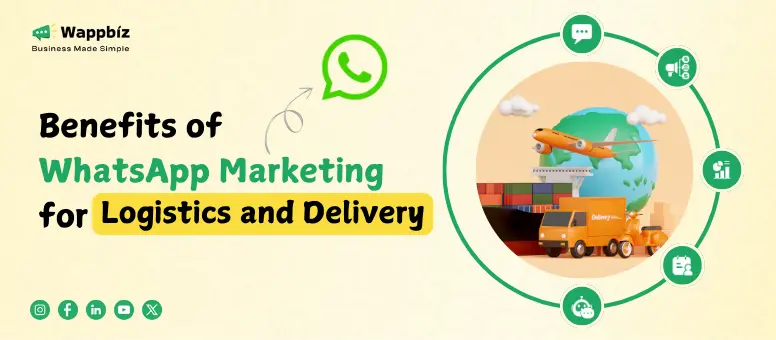
13. Order Modification Requests
At times, customers may need to make last-minute changes or additions to their delivery instructions. They can raise requests for the modification through the WhatsApp Chatbot, be it a change of delivery time or a change of address.
For example, when a customer knows they will not be available at the initial booked slot, he/she can simply change the delivery slot using WhatsApp. This flexibility boosts customer satisfaction and also reduces the number of failed deliveries.
14. Automated Survey Requests
Customers may receive a prompt to rate their experience after the successful delivery.
For example, a message might read, “How would you rate your delivery experience?” and give choices for a response. By using WhatsApp marketing to capture feedback, logistics companies can know their strengths and weaknesses and use this to work towards continuous improvement in customer satisfaction.
15. Item Return Instructions
In the case of returns, the WhatsApp API gives customers detailed descriptions of how to return items.
For example, a customer returns a product and receives a message that includes instructions for repackaging it and scheduling a pickup. It also reduces confusion and makes the process of returning an item simple and straightforward, which improves customer trust and loyalty.
16. Notifications for priority shipments
WhatsApp Business API sends priority notifications for customers who have chosen expedited shipping.
For example, when a carrier upgrades a customer’s package to express delivery and provides an estimated time of arrival. Prioritizing notifications helps carriers create a sense of value by showcasing to customers that their orders receive special attention.
17. Driver Contact Details
For customers receiving packages and their drivers, shortly before delivery, they can receive direct contact information, allowing them to communicate directly if necessary.
For example, a WhatsApp message takes the customer to the driver’s number to offer additional directions. This provides a more flexible delivery option and a greater level of convenience, leaving customers with peace of mind as to the standard of service.
18. Inventory and Stock Updates for Warehouse
Warehouse managers can utilize WhatsApp automation to get updates on the inventory level and restock items if stocks run low.
For example, an automated alert system could notify a warehouse when the stock of a specific item drops below a specific level, necessitating a reorder. Inventory stays organized using an automated alert system that reduces stockouts by triggering timely fulfillment.
19. Customs and Document Reminders
When it comes to international shipments, the WhatsApp API can remind your customers to provide any required customs documents.
For example, one message could ask customers to upload ID proof or any clearance documents. It ensures the timely and accurate completion of the process, preventing any delays in service delivery to our clients, and ensuring they understand the customs requirements.
20. Customized Delivery Incentives
WhatsApp Marketing also allows logistics companies to send personalized offers for upcoming shipments, including promotions like a discount on next-day delivery or free shipping on orders beyond a certain value.
For example, after a successful delivery, a customer might receive a message saying, “Enjoy 20% off your next delivery!” This personalized engagement encourages repeat business and strengthens customer loyalty.
Conclusion
In logistics, effective communication and operational efficiency are critical to maintaining customer satisfaction. A powerful way to send real-time updates, answer questions in the moment, and improve every aspect of the delivery process is the WhatsApp Business API. With all these features, logistics companies can accelerate workflows and deliver a service experience that is both efficient and customer-centric through Wappbiz.
Are you prepared to enhance your logistics procedures? This is precisely why Wappbiz streamlines WhatsApp API integration and ensures its reliability. Use Wappbiz for the delivery process going forward!

FAQs:
What can the WhatsApp Business API do for logistics and delivery companies?
Logistics companies use the WhatsApp Business API to connect with customers through real-time updates, tracking information, and straightforward communication.
Does the WhatsApp Business API allow for improved tracking of delivery to customers?
Absolutely! WhatsApp as a method of communication. Utilize WhatsApp as a method of communication for logistics providers, tracking links, updates, and notifications.
How does the WhatsApp Business API support customer communication in logistics?
Using WhatsApp, companies can respond to inquiries, confirm delivery times, and resolve issues quickly, leading to increased customer satisfaction.
WhatsApp Business API is highly cost-effective for logistics operations?
Indeed, logistic service providers are significantly less expensive than WhatsApp communication channels, thereby reducing the need for call centers and backend support teams.
Can the WhatsApp Business API assist with delivery confirmations?
Definitely! Businesses can instantaneously send delivery confirmations over WhatsApp (with a photo proof or digital signature, if necessary).
Is WhatsApp safe for logistics customer data?
Absolutely! The WhatsApp Business API helps you stay private and secure with end-to-end encryption across all communications and tracking information.
Will the WhatsApp Business API help to optimize route planning and driver coordination?
Indeed, logistics companies can form WhatsApp groups to split delivery routes, keep each other updated on delivery schedules, and add coordination among other WhatsApp groups.
How can the WhatsApp Business API aid in gathering feedback on logistics services?
Following the delivery of the goods, logistics providers can directly ask customers for feedback, thereby enhancing service quality and customer satisfaction.
How does the WhatsApp Business API improve delivery efficiency by avoiding failed deliveries?
WhatsApp helps reduce missed or failed delivery attempts, as it allows businesses to confirm delivery times and locations with customers in real time.

